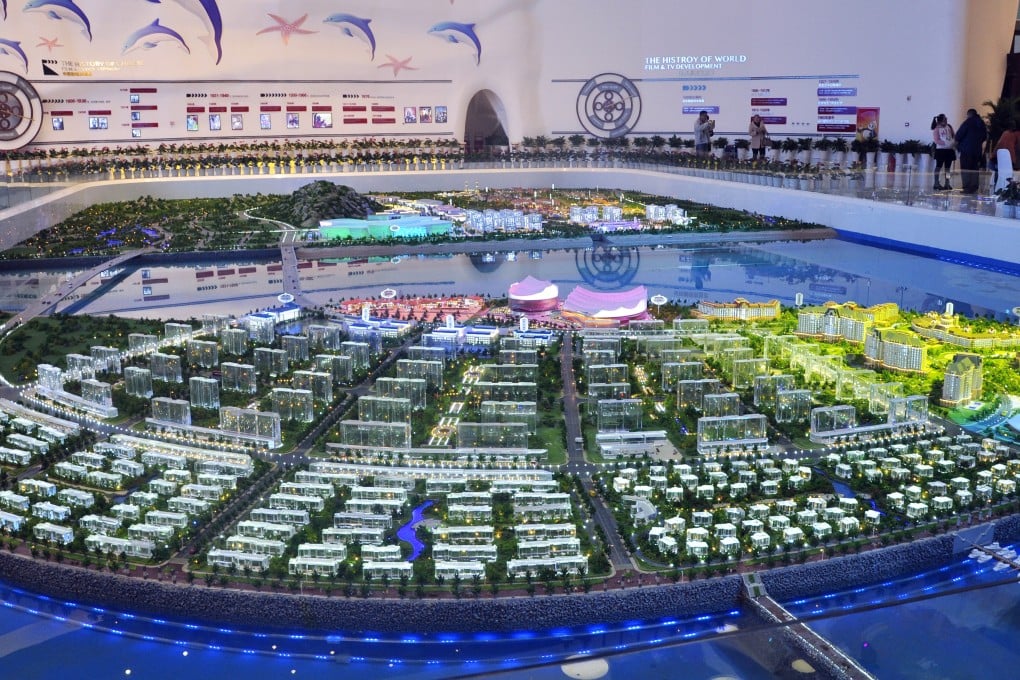What happened to Wanda tycoon’s dream of a Chinese Hollywood?
Wang Jianlin’s plan for a Chinese ‘movie metropolis’ seems to have hit a wall after Dalian Wanda agreed to sell most of its hotel and tourism portfolio to a rival

Driving along the western edge of the city of Qingdao, it’s hard to overlook a gigantic sign on a hillside which resembles the classic “Hollywood” sign in Los Angeles – only it’s much bigger.
The sign reads, Dong Fang Ying Du, or Oriental Movie Metropolis, announcing the sprawling construction site of a project designed to become China’s answer to Hollywood.
Promising the world’s best film production facilities, the 200-hectare complex in the eastern city – which will also include a theme park and luxury hotels – is expected to be fully operational in 2018, a year later than scheduled. It had been seen as the jewel in the crown of Dalian Wanda Group, the property-entertainment business empire created by the country’s richest man, Wang Jianlin.
Wang’s dream of creating a Hollywood in China from scratch looked serious in 2013 when he flew in some of the world’s most glamorous stars – including Nicole Kidman, Catherine Zeta-Jones and Leonardo DiCaprio – for the groundbreaking ceremony of the project, which has a price tag of 50 billion yuan (US$7.3 billion).
A year earlier, Wanda had become the world’s largest cinema operator when it bought US-based chain AMC Theatres for US$2.6 billion. Meanwhile, Wanda has been grabbing land across the country to develop hotels, theme parks and residential buildings. In May last year, Wang told state television that Wanda’s theme parks could make Disney’s venture on the mainland “unprofitable” in 10 to 20 years.
But Wang’s grand ambition seemed to hit a wall last week when the company announced it would sell a 91 per cent stake in 13 cultural tourism projects – including the Qingdao film complex – and 76 hotels to Sunac China Holdings for 63 billion yuan.
The single biggest property deal on the mainland has raised plenty of questions, and the South China Morning Post earlier reported three possible reasons behind the deal.